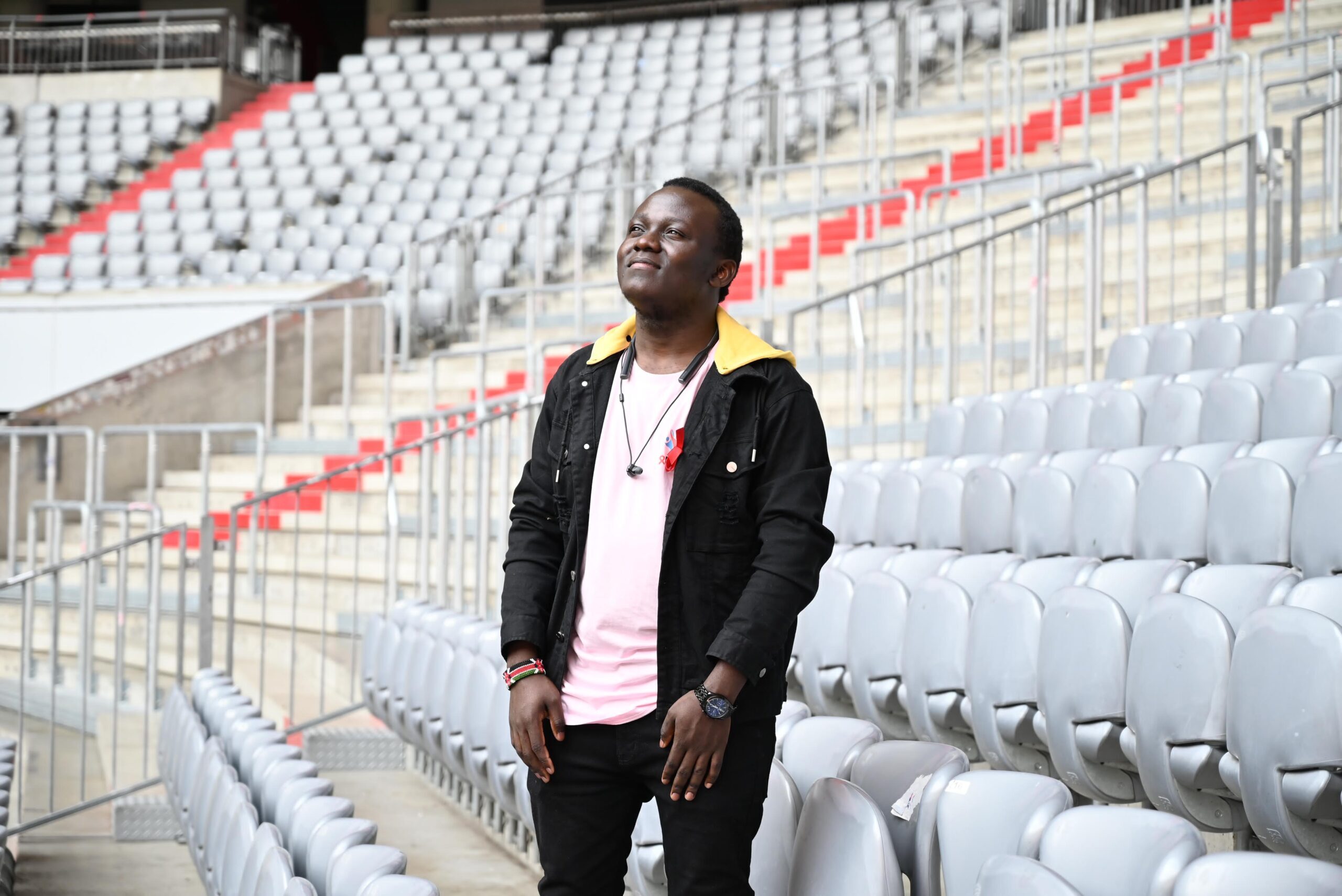February 20 is designated as the World Day of Social Justice. Gender equality is an important lens through which to view social justice. This is particularly true when it comes to adolescent girls, who are less likely to complete their education and more likely to become infected with HIV than are adolescent boys. Mama County Says, a program in western Kenya, addresses both of these issues.
Lines of adolescent girls descend from school buses and stroll across the grounds of the St. Francis Nyangajo Girls School in Homabay County, Kenya. Chatting and laughing, the girls find their way to seats under tents along the perimeter of the sports field. In all, more than 2,000 girls from area schools fill the space. The girls are happy to be out of the classroom.

The buzz of conversation subsides as three of their peers, step onto the stage at the end of the field. The girls recite poems and deliver testimonies about how they have stood up for themselves to stay in school, to avoid HIV, to avoid pregnancy. Other groups of girls then come forward to orate or to act out skits. The dramas recreate situations in which a girl might be persuaded to engage in risky sexual behavior or be compelled into marriage. In each case, the protagonist learns to stand up for herself and put her education first.

This is a summit assembly of Mama County Says, a program initiated in 2012 by Homabay County Rep. Gladys Wanga to sensitize secondary school girls on the importance of staying in school. Before her election to parliament, Rep. Wanga worked on HIV prevention, care, and treatment with LVTC Health, a Kenya-based nongovernmental organization. Now she has partnered with the Elizabeth Glaser Pediatric AIDS Foundation (EGPAF) with the aim of preventing new HIV infections in young women and ending childhood pregnancy.

Worldwide, adolescent girls remain at highest risk of HIV infection, with 1,000 new cases each day. Girls in sub-Saharan Africa are infected at three times the rate of adolescent boys.
HIV takes on even greater urgency here in Homabay County, which has the highest HIV rate in Kenya.
- 1/4 of all adults is living with HIV.
- The risk of infection among adolescent girls is magnified by the high incidence of child marriage. Nearly half of all girls marry before they complete school.
- 1/3 of all girls are pregnant before the age of 19. According to a 2015 Population Council survey, pregnancy is the primary reason that girls in Homabay County abandon their education.
- Girls are often confused about reproductive and sexual health, particularly when it comes to preventing sexually transmitted infections like HIV.
Dignitaries and public health officials take to the stage at Nyangajo Girls School, with words of encouragement for the girls. Rep. Wanga starts with the words of Lupita Nyong’o: “No matter where you come from, your dreams are valid.”
“You can become anyone you want,” says Rep. Wanga. “You must dream to become someone great.”


“Look to your right. Look to your left,” she continues. “You have the responsibility to make sure that you and your friends all complete school. Discipline and self-respect are the keys to success.”
The program ends with groups of teenage girls performing traditional dances infused with a spirit of female unity. Finally, a group of boys decorated in traditional regalia enters the field to dance for their sisters and send the message to stay in school.


School assemblies hosted by Mama County Says aim to engage and empower adolescents by integrating lively entertainment with vital messages. Over the long term, the program facilitates mentorship for adolescent girls by connecting them with role models—women in the community who have completed their education and have achieved career success. The program also improves transitions and pathways from primary education to college. Because many of the girls come from low-income families, the program also helps with school fees and provides necessities such as sanitary pads.
The ultimate goal of Mama County Says is to reduce the number of teenage pregnancies, increase the age at which girls become sexually active, and improve the uptake of health interventions for these girls and their babies once they finally do become mothers.
“Girls are vulnerable to many forms of human rights violations and need the protection of parents and leaders,” says Wanga. “Education is the obvious tool.”





